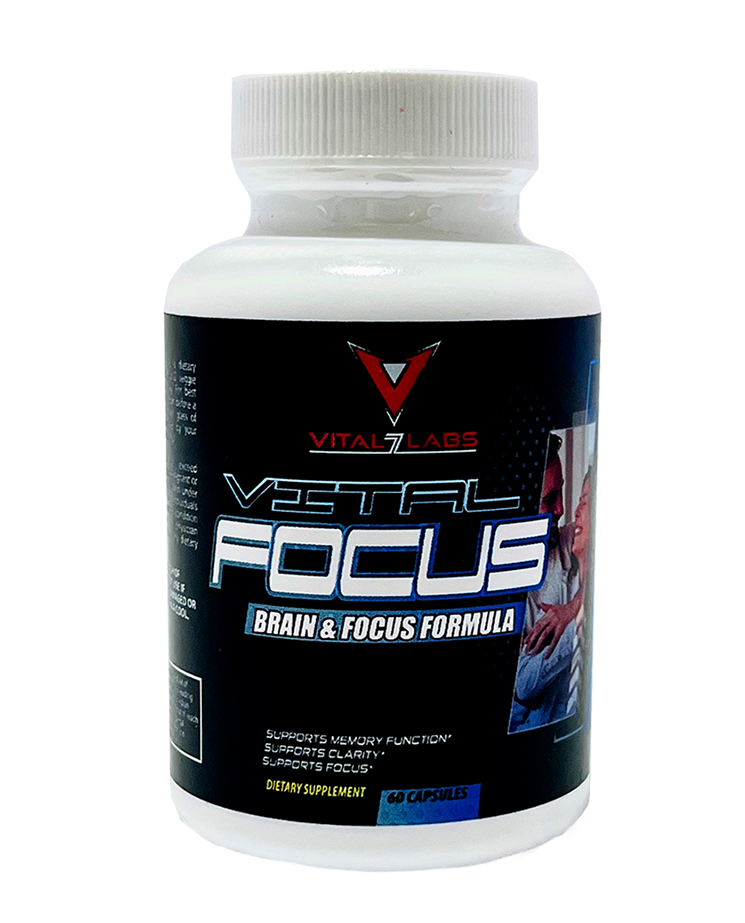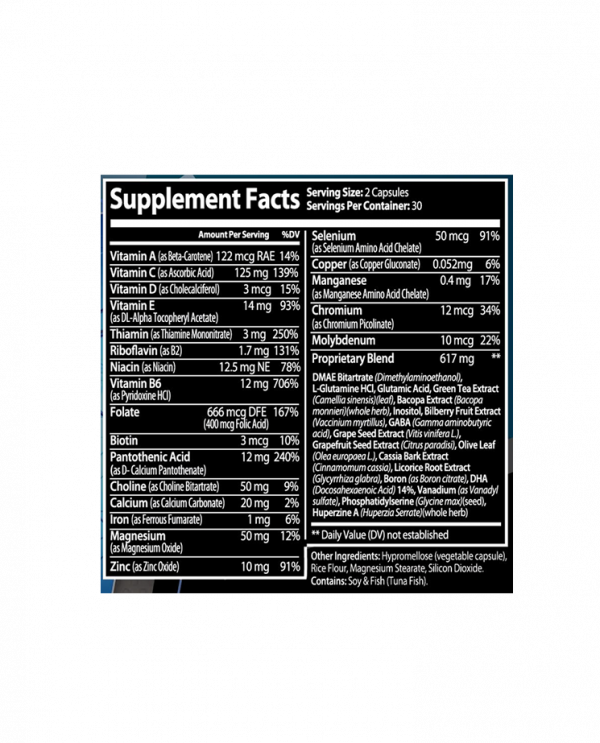Supplements
Brain Power & Vitality
The Importance of Selenium, Copper, Chromium, and Molybdenum for Daily Health.
In the pursuit of optimal health, we often focus on macronutrients like carbohydrates, proteins, and fats, as well as essential vitamins and minerals. However, some lesser-known micronutrients play crucial roles in maintaining overall well-being. Selenium, copper, chromium, and molybdenum are among these unsung heroes, each contributing uniquely to various physiological functions that impact our daily health. All of these micronutrients can be found in Vital 7 Labs “VITAL FOCUS” It’s vitality in a bottle.
Selenium: The Antioxidant Defender
Selenium is a trace element that acts as a powerful antioxidant in the body. Its primary role is to assist in the production of selenoproteins, which play a key role in protecting cells from oxidative damage. Oxidative stress, caused by an imbalance between free radicals and antioxidants, has been linked to various chronic conditions, including heart disease and cancer. Selenium’s ability to neutralize free radicals helps maintain the health of tissues and organs.
Moreover, selenium supports a well-functioning immune system, aiding in the defense against infections and illnesses. Including selenium-rich foods like Brazil nuts, seafood, and poultry in your diet can contribute to the overall protection of your cells and promote a robust immune response.

Copper: The Vital Trace Mineral
Copper is an essential trace mineral that plays diverse roles in the body. One of its primary functions is participating in the formation of red blood cells and maintaining a healthy cardiovascular system. Copper is a cofactor for enzymes involved in iron metabolism, facilitating the transport of iron in the blood and its incorporation into hemoglobin.
In addition to its cardiovascular benefits, copper supports the formation of connective tissues, bones, and the central nervous system. Foods such as nuts, seeds, whole grains, and organ meats are rich sources of copper, ensuring the body has an adequate supply for these vital functions.
Chromium: Balancing Blood Sugar Levels
Chromium is a trace mineral essential for proper insulin function, making it crucial for glucose metabolism. Insulin, a hormone produced by the pancreas, regulates blood sugar levels by facilitating the uptake of glucose into cells. Chromium enhances the action of insulin, promoting efficient glucose utilization and helping to stabilize blood sugar levels.
Individuals with chromium deficiency may experience insulin resistance, a condition associated with an increased risk of type 2 diabetes. Including chromium-rich foods like broccoli, whole grains, and lean meats in your diet can contribute to maintaining optimal blood sugar control and reducing the risk of diabetes.
Molybdenum: Enzymatic Support
Molybdenum is a trace element that serves as a cofactor for various enzymes involved in crucial metabolic processes. One of its main roles is participating in the conversion of sulfur-containing amino acids, contributing to the detoxification of certain substances in the body.
Molybdenum also plays a role in breaking down purines, which are compounds found in foods and the body. This process helps prevent the accumulation of uric acid, reducing the risk of conditions like gout. Legumes, whole grains, and leafy vegetables are good sources of molybdenum that can be easily incorporated into a balanced diet.
Conclusion:
While selenium, copper, chromium, and molybdenum may not be as well-known as some other nutrients, their importance in maintaining daily health is undeniable. From protecting cells against oxidative stress to supporting insulin function and aiding in enzyme activity, these micronutrients contribute to a well-functioning and resilient body. As we prioritize our nutritional choices, recognizing the significance of these trace elements can empower us to make informed decisions for a healthier, more vibrant life.


